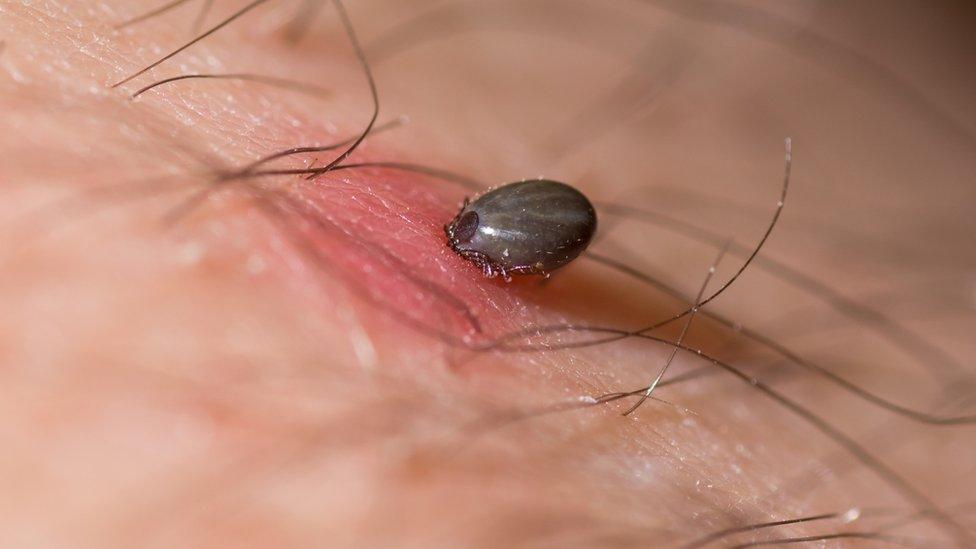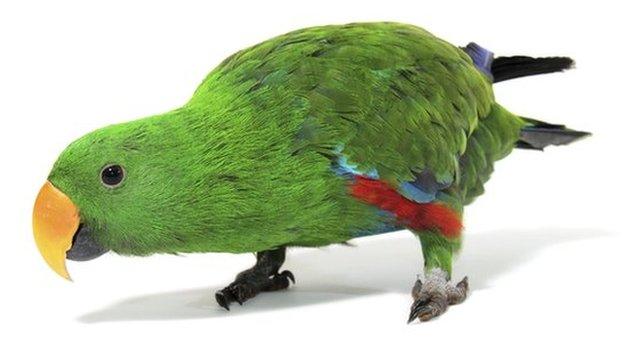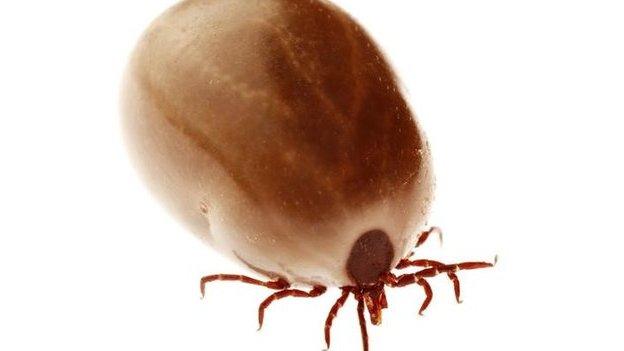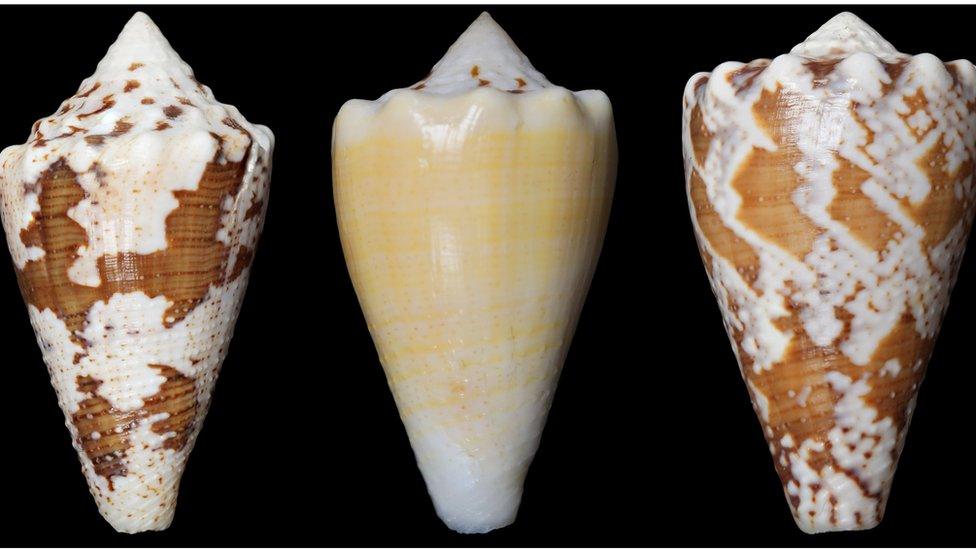Tick saliva 'gold mine' blocks killer heart condition
- Published

Ticks are masters at feeding without causing any pain or inflammation
The saliva from ticks could be used to treat a dangerous kind of heart disease that can cause sudden death in young people, scientists say.
Proteins in the saliva were found to be excellent at stopping inflammation of the heart, which can cause myocarditis and lead to heart failure.
Oxford University researchers say ticks are a "gold mine" for new drugs.
And there is potential they could be used to treat other diseases, such as stroke and arthritis, they said.
But all the research has so far been done in the lab, so it is likely to be many years before the drugs are used on humans.
Under cover
Ticks are experts at biting without being noticed.
This means ticks can feed on animals and humans for eight to 10 days without there being any pain or inflammation.
Writing in Scientific Reports, scientists say this is a result of proteins in the saliva preventing inflammation by neutralising chemicals called chemokines in the host.

Myocarditis can result in sudden cardiac death in young adults
This is also important in people with myocarditis, external, a condition where chemokines are released in the heart and cause inflammation to the heart muscle.
The problem is difficult to spot and can lead to dilated cardiomyopathy and heart failure in a third of people, with some then needing a heart transplant.
The researchers have now identified new proteins in tick saliva that appear to block the effect of particular chemokines that cause heart problems.
Prof Shoumo Bhattacharya, BHF professor of cardiovascular medicine at the University of Oxford, who led the research, said: "Myocarditis is a devastating disease, for which there are currently very few treatments.
"With this latest research, we hope to be able to take inspiration from the tick's anti-inflammatory strategy and design a life-saving therapy for this dangerous heart condition.
He added: "We may also be able to use the same drugs to treat other diseases where inflammation plays a big part, such as heart attack, stroke, pancreatitis, and arthritis."
Tick milking
Tick saliva can contain up to 3,000 proteins, depending on the tick species.
To avoid having to milk the ticks for their saliva using a tiny tube - the way it used to be done - scientists now grow tick saliva proteins in yeast, from synthetic genes.
This way they can make very large amounts.
They now hope their "bug to drug" pipeline will lead to new treatments for a range of other diseases.
Prof Jeremy Pearson, associate medical director at the British Heart Foundation, said: "They may not be pretty, but these little creatures could hold the secret to better treatments for a whole range of diseases.
"There's a long way to go, but tick saliva looks like an exciting, albeit unconventional, area of research."
- Published7 March 2017

- Published28 March 2014

- Published2 May 2014

- Published21 February 2017
